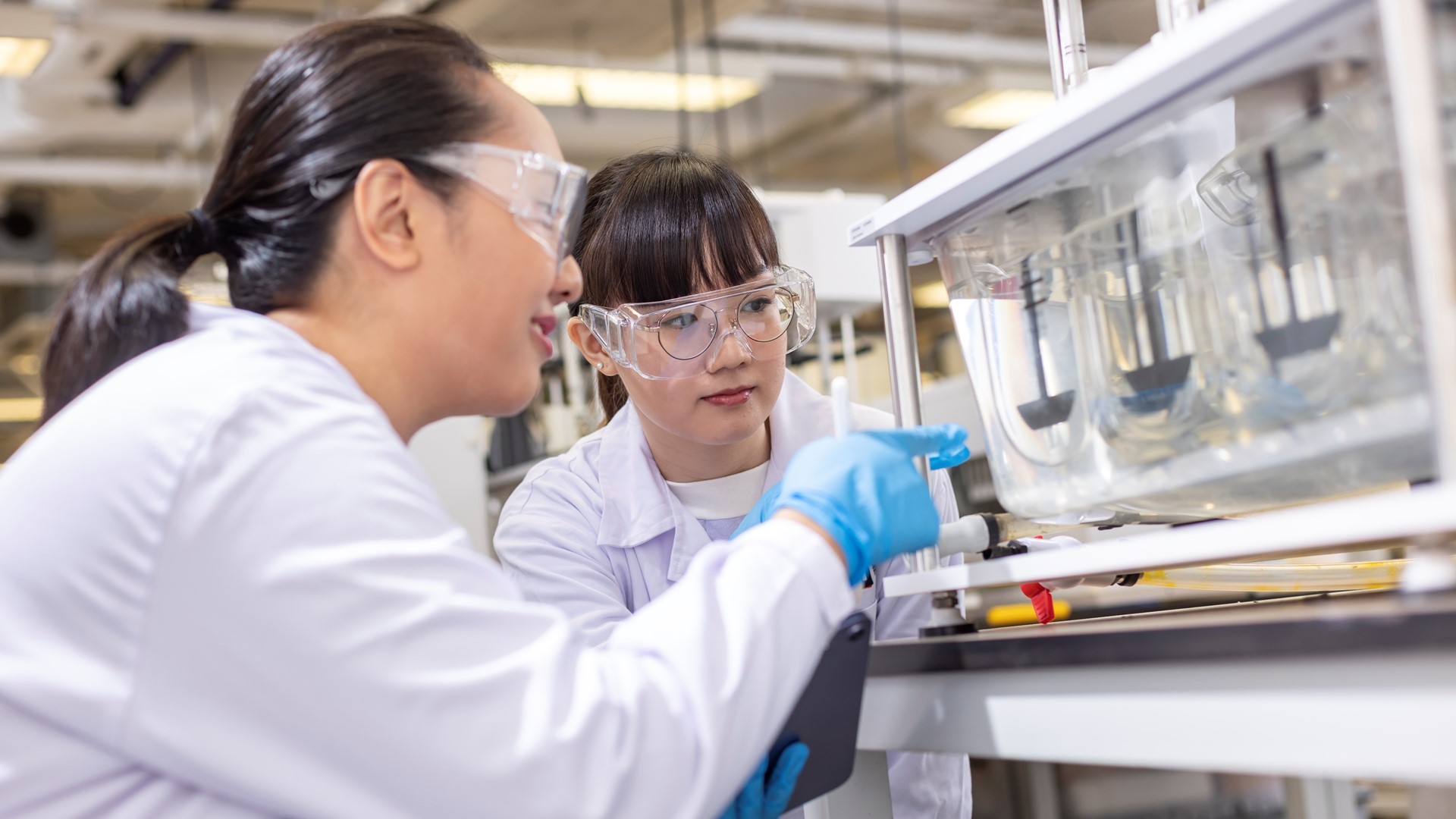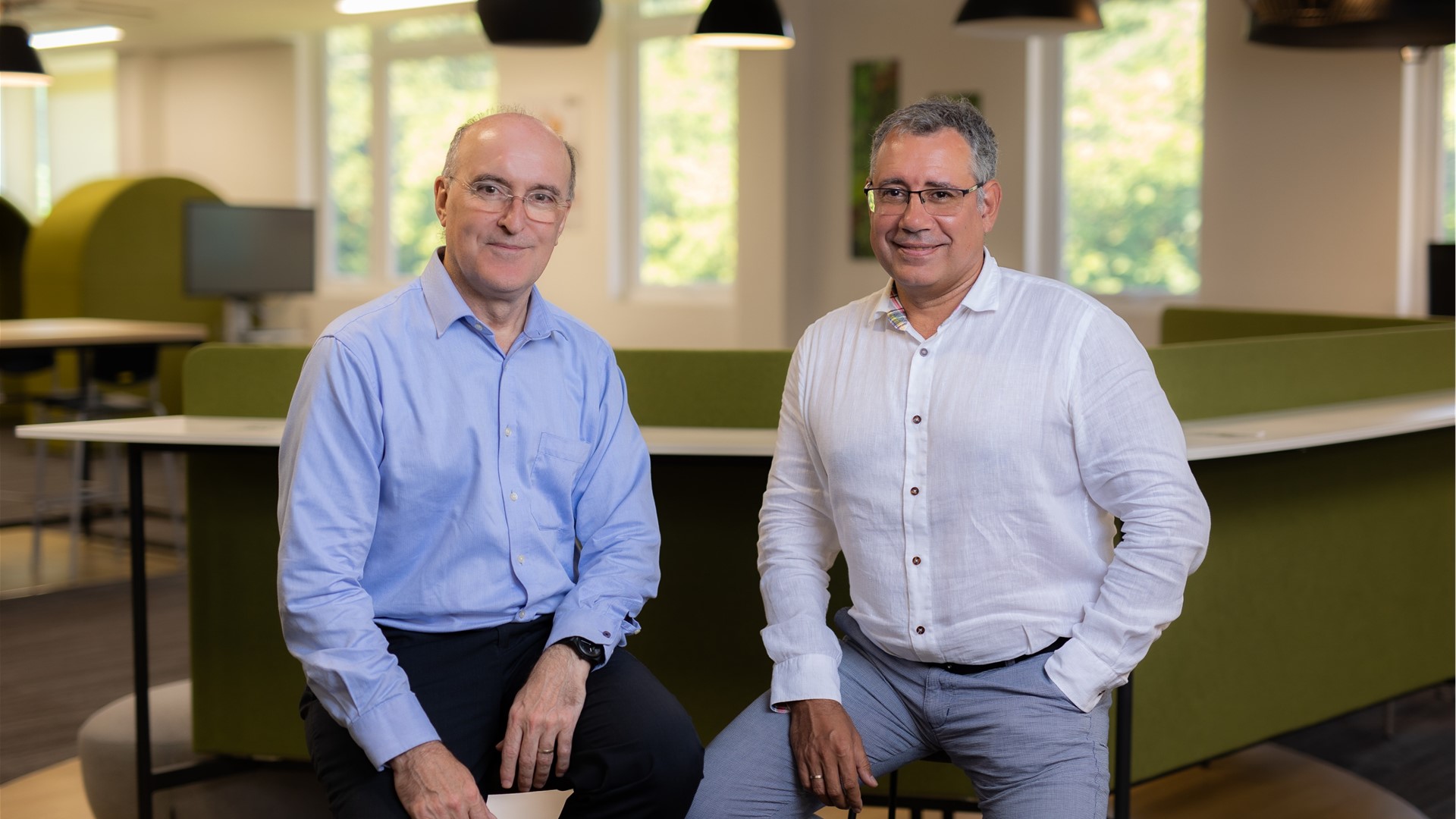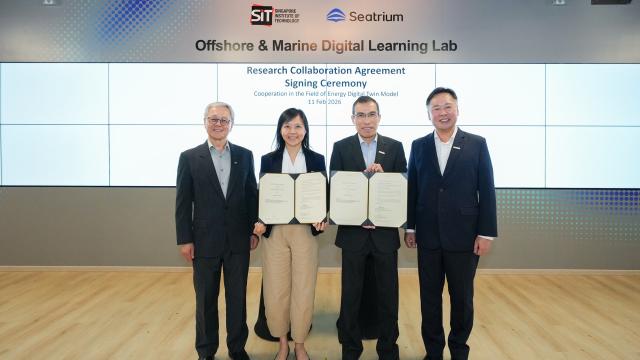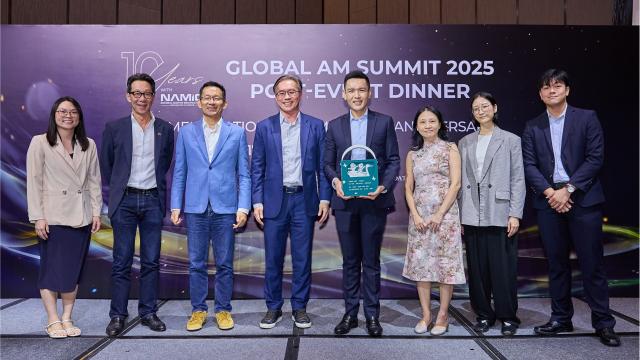Through applied research and industry collaboration, researchers at the Singapore Institute of Technology address sustainability and circularity issues in the key sectors of food, chemical and biotechnology.

SIT's work on sustainability and circularity is helping to create a more sustainable future for Singapore and the world. (SIT Photo: fotto-graffiti/Andrew Ang)
In 2021, Singapore unveiled the Singapore Green Plan 2030 as the national agenda for sustainable development. The plan outlines various targets the government aims to achieve by 2030, including adding more green spaces, reducing landfill waste, transitioning to cleaner energy and strengthening the capability of the food industry to produce food locally - the country imports over 90 percent of food at present.
Supporting Singapore’s sustainable development efforts are researchers from the Food, Chemical and Biotechnology (FCB) cluster at the Singapore Institute of Technology (SIT), which emphasises applied learning and research in its programmes. Industry collaboration constitutes the ethos of SIT, in which researchers and companies work together to address issues in Singapore’s key sectors.
“We complement other universities that are more traditionally research-driven by focusing on purpose-driven translational research and innovation. Our objective is to help companies in those sectors move their technology forward, innovate and develop their capabilities through the science and technology that we do. Working with companies as trusted partners, we identify the drivers of the sector, help the companies head toward where they want to be and position our work to bring distinctive value,” shared Professor Paul Sharratt, who heads the FCB cluster.
The FCB cluster focuses on tackling the challenges of sustainability, process efficiency and digitalisation across the food, chemical and biotechnology sectors. The faculty’s research - which is both interdisciplinary and multidisciplinary - is geared toward developing specific solutions for industry partners and generating novel approaches as a whole.
Sustainability is both a key challenge and a point of interest as companies either have realised the need to be efficient, or are driven by societal and governmental pressures to change. To support these companies, the FCB researchers apply their expertise in various areas, including improving protein recovery from waste, seeking alternative sources for raw materials and adopting the circular economy model in processes.
“We have a big ongoing project that looks at recovering proteins from vegetable sources such as mung beans, and from process waste, such as brewers’ spent grains. Turning waste to resource is a theme that’s important for us. We’re in the early stages of exploring turning waste biomass to chemicals, and we’re also considering membrane technologies, which are inherently energy-efficient separators, to recover and reuse materials from waste,” Professor Sharratt described.

From left: Professor Paul Sharratt, Cluster Director, and Professor Simeon Stoyanov from the Food, Chemical and Biotechnology cluster at SIT. (SIT Photo: Keng Photography/Wang Zhixiang)
Echoing his views is faculty member Professor Simeon Stoyanov, whose interest lies in maximising the functionality and value of existing materials.
“When we look at the drivers of sustainability and circular economies, there are two aspects. One is to generate less waste and the other is to optimise efficiency and functionality. How many more products can we create from the same material? Conversely, can we use fewer materials to create the same number of products? How can we also functionalise the source material for better products and for other applications?” said Professor Stoyanov.
To make sustainability truly viable in the long run, however, two factors must be considered. First, the approach must be economically feasible as cost can be a significant constraint for companies. According to Professor Stoyanov, any solution offered should be justifiable with respect to cost.
“It’s not always explicitly said, but sustainability has to make sense from the business perspective first. Businesses and consumers are more environmentally cautious, but nobody wants to pay for processes that are several times higher to make a small change. We need efficient but also cost-effective solutions,” Professor Stoyanov posited.
Second, effective change is often system-level and goes beyond a company’s purview. For example, substituting crude oil with biomass as an energy source is not a simple one-to-one replacement. Processing biomass requires infrastructure, assembly and procedures that are of a different scale. Making the switch could also disrupt the overall supply chain during the transition or affect sectors that rely on biomass for other uses.
“These changes are potentially big investments, and de-risking them through government intervention takes some thought and planning because we’re not just looking at plug-in technology anymore. Circularity is a massive system-level challenge, so we need to be thoughtful in how we work in this space,” said Professor Sharratt.
That said, he also opined that as important as the circular economy model is, it should not be the end goal of companies - achieving sustainability should be their ultimate aim.
“We need to make sure we don’t consume so fast that things are being depleted and ecosystems destroyed. Circularity brings valuable insights and is a great conversation starter, but it must not become an end in itself. Can we make every process circular? Perhaps we need to take a step back and ask ourselves, ‘If we make this circular, does that benefit sustainability?’ If it doesn’t, why don’t we do it differently?” added Professor Sharratt.

SIT researchers are innovating new solutions to help businesses reduce their environmental impact. The university developed a fully biodegradable hydrogel film in collaboration with Sporogenics. (SIT Photo: Keng Photography/Tan Eng Keng)
Apart from that, having a system-level approach to sustainability also extends to education. At SIT, undergraduate and postgraduate students are highly engaged in research, particularly in sustainability. Many students are also from the industry, pursuing courses for self-development or as part of their job requirements.
In Professor Stoyanov’s view, the cross-disciplinary approach that emphasises applied learning is valuable - especially in the context of sustainability - to ensure that work-ready graduates are able to take on real-world problems. Given the complexity of sustainability issues, he believes that open innovation and collaboration will continue to drive impactful research.
“Sustainability boils down to specific challenges in everyone’s area of expertise. It’s interesting, and I find it inspiring to tackle a challenge and try to see the big picture by working with many researchers from different interdisciplinary areas. If we can find ways to work together, we can create more energy and waste-efficient solutions. Sustainability has become a challenge that is beyond pure science,” Professor Stoyanov explained.
Visit SIT's FCB webpage here to read more about the ongoing research at the Food, Chemical and Biotechnology cluster.
This article first appeared in Asian Scientist Magazine online.















![[FA] SIT One SITizen Alumni Initiative_Web banner_1244px x 688px.jpg](/openhouse2025/openhouse/centre-professional-communication/sit-teaching-and-learning-academy/centre-professional-communication/sites/default/files/2024-12/%5BFA%5D%20%20SIT%20One%20SITizen%20Alumni%20Initiative_Web%20banner_1244px%20x%20688px.jpg)


